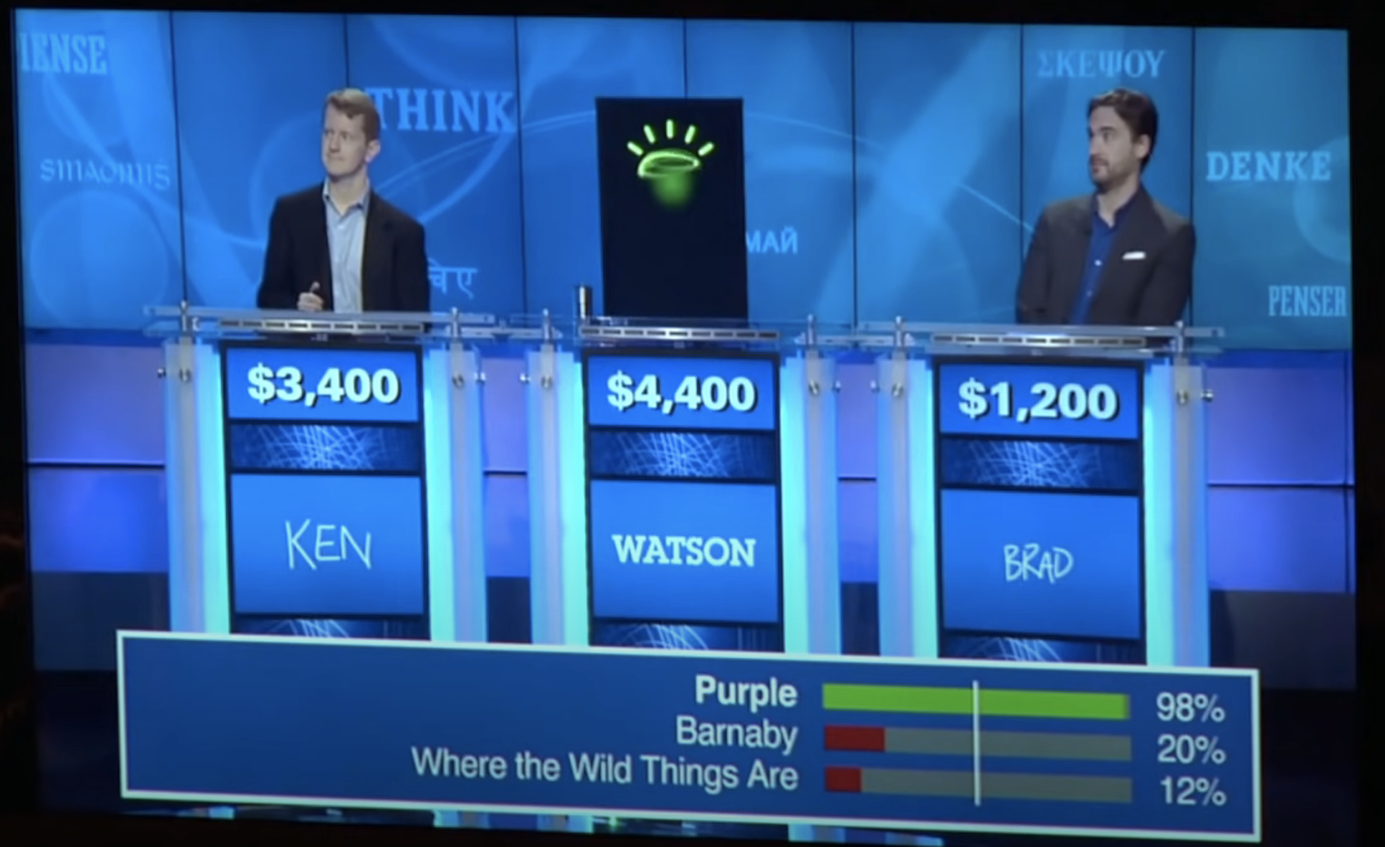A WRR report on artificial intelligence recently gained a lot of media attention. What does it say and what can TU Delft do? Pro Vice Rector AI Geert-Jan Houben reflects.
LLegendary example of AI from 2011: IBM's super computer Watson wins the American TV quiz show Jeopardy, in which the machine has to discern irony and riddles (Photo: YouTube still).
“If the Netherlands does not prepare well for this fundamental change, not only will it run the risk of missing opportunities, but it will also saddle society with a technology that will not serve our interests.” This is what is stated in a report (in Dutch) on artificial intelligence (AI) in society, published in mid-November and compiled by the Wetenschappelijke Raad voor het Regeringsbeleid (Scientific Council for Government Policy, WRR), a Government and Parliament advisory body.
To briefly summarise, the WRR states the following. AI is here to stay and both society and politics need to quickly learn how best to deal with it to enable its societal potential to flourish and minimise risks of ruthless ‘computer says no’ type of applications. AI is a so-called system technology, a technology with a large and long lasting impact on the economy and society that at present has unforeseeable effects – just as electricity and the combustion engine had at the time.
Delta spoke with Geert-Jan Houben, TU Delft’s Pro Vice Rector for Artificial Intelligence, Data and Digitisation on the phone.
This report got a lot of media attention for a WRR publication. What does that say about the thinking about artificial intelligence?
“The report and the media attention are a reflection of the natural growth of the societal discussion about AI. The historical comparison with the invention of electricity underlines that AI will have an impact on society as a whole and relationships in the whole world in the decades to come. The societal discussion about AI must thus be much wider than only on a couple of implementations in the short term and only about the national context. We need to discuss how society will handle AI in all its facets. The WRR report is part of this discussion.”
“We do know that introducing new technologies infers trial and error”
What struck you the most about the report?
“The WRR clearly explains that the option is not to ignore the development of this type of system technology. Even if it cannot be predicted what the consequences will be in the long term, we do know that introducing new technologies infers trial and error and has both positive and negative effects. What we therefore need to do is concentrate on minimising the negative effects without sacrificing the new opportunities that it offers such as speeding up the energy transition.”
What does the report mean for TU Delft?
“For me, it confirms that we have opted for the right approach by incorporating AI in education, research and innovation. It also underpins our strong belief in combining fundamental and applied research. At the moment about 700 TU Delft scientists are working on the fundamental technology side, ‘in AI’. About the same number of academics – which is growing fast – is working on applications for various fields, ‘with AI’. Our strong belief in the interchange between them is shown in the TU Delft AI Initiative, a catalyst for research, education and partnerships in and with AI, data and digitisation. The TU Delft AI Labs, that were established a short while ago, underpin this too. They act as a sort of pressure cooker for the close cooperation between fundamental and applied AI researchers, in part to quickly create a greater societal impact with AI.”
The WRR names five tasks related to AI: demystification, contextualisation, engagement, regulation and positioning. Do you recognise these and do you see a role for TU Delft?
“It is very useful that the report names these tasks and clarifies what the Government can expect. TU Delft clearly has an important role to play in these tasks and should include societal effects in the development of new innovations. I believe that we are already fulfilling this role well. We explicitly include demystification in our education. Our students get a realistic picture of the development of AI and realistic applications. In terms of contextualisation, we explicitly look at AI in the context of applications such as AI in energy, security or health. Further, TU Delft has several groups of scientists that are working on crucial issues such as AI and ethics, AI and values, human control of AI and people-focused AI. TU Delft is thus helping find answers to real questions about ‘the electricity of the 21st century’, as the WRR describes artificial intelligence.”
Marieke Enter / Nieuwsredacteur



Comments are closed.